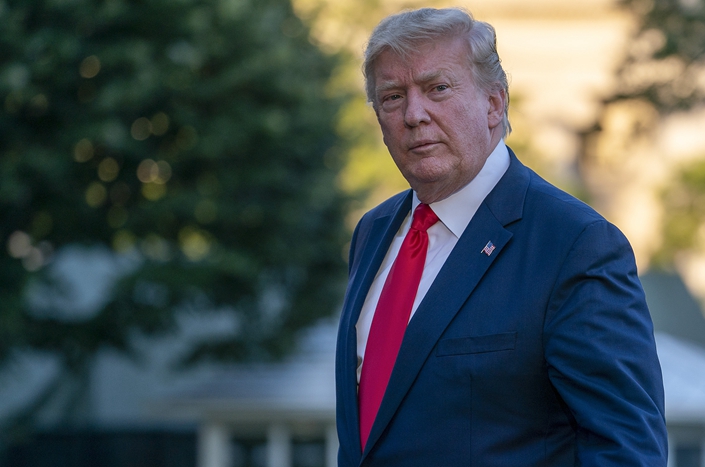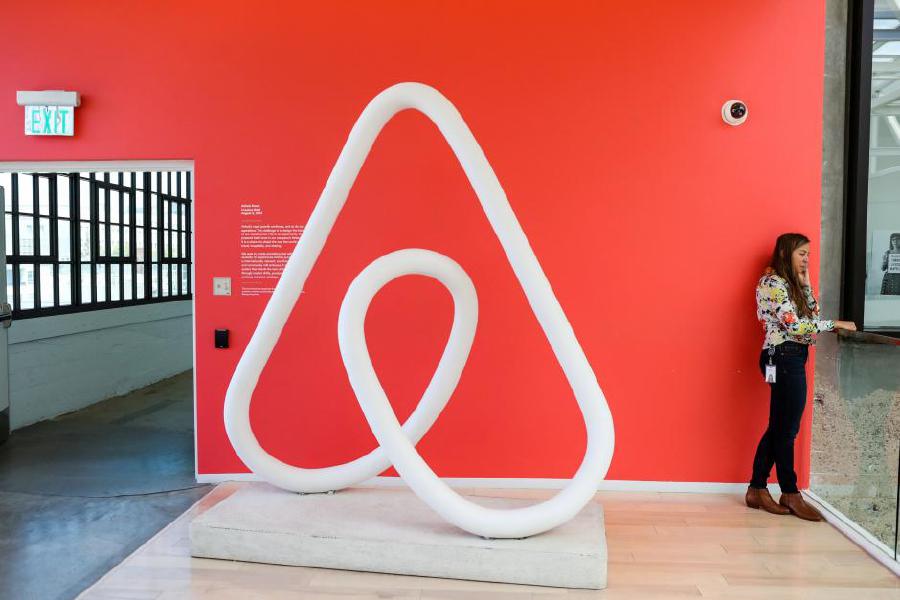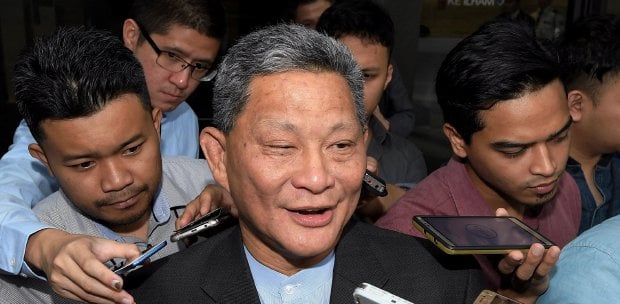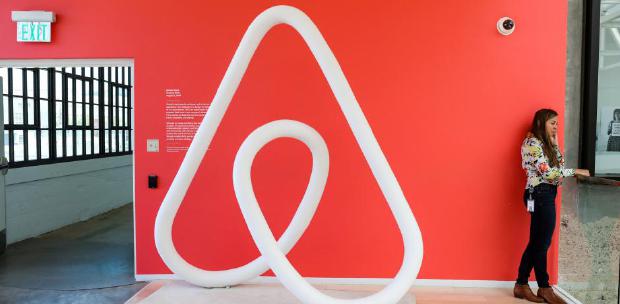‘China is Not an Enemy’ Says Open Letter Signed by 100 American China Experts to Trump
 |
| U.S. President Donald Trump. Photo: VCG |
Experts tell Trump that China is not the enemy, so who is?
https://youtu.be/1hf5VAKG-TU
https://youtu.be/1hf5VAKG-TU
A hundred American academics, diplomats and experts from the military and business communities signed an open letter calling on President Donald Trump to reexamine his policy toward China. The letter was published Wednesday in the Washington Post.
In the letter, titled “China is Not an Enemy,” the signatories express concern over the negative orientation of the Trump administration’s China policy.
“We do not believe Beijing is an economic enemy or an existential national security threat that must be confronted in every sphere,” the experts say in the letter.
The five authors are M. Taylor Fravel, a professor at MIT; J. Stapleton Roy, a former U.S. ambassador to China; Michael D. Swaine of the Carnegie Endowment for International Peace; Susan A. Thornton, the former assistant secretary of state for East Asian and Pacific Affairs; and Ezra Vogel, a professor at the Harvard University Fairbank Center for Chinese Studies.
The deterioration of the bilateral relationship is not in the interests of the U.S. or the rest of the world, and Trump’s attempt to “decouple China from the global economy” will damage the U.S. global reputation, according to the letter.
“The United States cannot significantly slow China’s rise without damaging itself,” the authors write.
“The fear that Beijing will replace the United States as the global leader is exaggerated,” the letter says. “Most other countries have no interest in such an outcome, and it is not clear that Beijing itself sees this goal as necessary or feasible.”
The key message of the letter is that the U.S. should not make China its enemy, especially in a rash manner, said Li Cheng, director of the Brookings Institution's John L. Thornton China Center, who signed the letter.
Signatories are representative as they hold different views toward China — some are pro-China and others are more critical, Li said. But they all disagree with the Trump administration’s China policy, Li said.
“I won’t say we are the majority,” Li said. “Maybe we are the minority that can’t change some people’s extreme views, but among those who reexamine the U.S. policy on China, many have started reconsideration.” Additional scholars have endorsed the letter after its publication online, he said.
A better policy orientation for the U.S. would focus on building long-term alliances that support economic and security objectives based on a realistic assessment of China’s ideology, interests, goals and actions, the experts write.
“We believe that the large number of signers of this open letter clearly indicates that there is no single Washington consensus endorsing an overall adversarial stance toward China, as some believe exists,” the letter concludes.
Views toward China vary significantly among different social groups in the U.S. and also inside the government, Li said.
“There is a need for different voices to let China know that there is no consensus on America’s China policy, and there won’t be one for a long time,” Li said.
Most of the signers are older experts who don’t represent the views of younger Americans, some observers said. Although the open letter originally targeted senior scholars with strong academic backgrounds, Li said it’s inappropriate to argue that younger scholars view China in a more adversarial way. A public poll showed that Americans under 29 are actually friendlier toward China, Li said.
Older scholars and officials have a better understanding of China after witnessing the country’s changes over recent decades, but members of younger generations will also know China better as time goes by, Li said.
“A proper discussion of China policy is very important, and it shouldn’t be limited inside the government,” Li said. Although it is unclear whether the letter will influence policy, he said it sends a strong message that “the views toward China between the U.S. government and scholars are different.”
Since last year, the two countries have been locked in a trade war, slapping tit-for-tat tariffs on hundreds of billions of dollars of each other’s goods. Chinese President Xi Jinping and Trump agreed last week at a G-20 summit in Osaka, Japan, to resume trade talks. The U.S. also agreed not to impose new tariffs on Chinese imports.
This story was updated with Li’s comments.
By Qing Ying, Ren Qiuyu and Han Wei
Contact reporter Ren Qiuyu (qiuyuren@caixin.com); Han Wei (weihan@caixin.com)
Source link
Read more:
Trump urged to take 'wiser' approach with Beijing in open letter from China
experts in US The Straits Times
Trump urged to take 'wiser' approach with Beijing in open letter from China
experts in US The Straits Times
US actions hurting relations with China, 100 academics, policy ...
Letter to exert positive impact but unlikely to be taken seriously by White House: experts
An open letter to US President Donald Trump signed by scores of Asia specialists including former US diplomats and military officers has revealed that rational voices are emerging to challenge paranoid ideas, Chinese experts noted on Thursday.
China insists all trade war tariffs must be eliminated as part of a trade deal
https://youtu.be/IrWn9zl2N24
'Hong Kong attacks a political act' - Asean+ | The Star Online
https://youtu.be/dUtOjDf1iyY
https://youtu.be/Vu3Z2gsOzvI
https://youtu.be/GSZ73pNdsFg
During an interview Thursday, British Foreign Secretary Jeremy Hunt still refused to directly criticize the violent protesters who stormed and vandalized the Hong Kong Legislative Council. Instead, he superficially stated that the UK condemns "all violence" and warned China again. He did not elaborate on the "serious consequences" that he previously warned China that it may face, but said the UK is "keeping options open" over China.https://youtu.be/Vu3Z2gsOzvI
https://youtu.be/GSZ73pNdsFg
Almost all analyses believe Hunt is putting on an air. Nobody believes the UK will send its only aircraft carrier to China's coast. Nor would anyone believe the UK will punish Beijing at the cost of hurting trade with China. The UK has been dwarfed by China in military and trade. Hunt's inappropriate statements make many British people nervous: Will Beijing cancel an order from the UK to warn British politicians?
If China-UK relations deteriorate, will expelling Chinese diplomats become a card for London? This was the way that the Theresa May government used to deal with Moscow when a former Russian spy was poisoned in the UK. BBC reporters asked Hunt about the possibility for expelling diplomats. But it seems more like these BBC reporters, who bully politicians for pleasure, were using the unreliable option to make things difficult for Hunt.
Launching a diplomatic war against China leads to nowhere. European countries will not stand by London on the Hong Kong issue. By worsening diplomatic relations with China, the UK will only isolate itself.
What's important is that Beijing has done nothing wrong on the Hong Kong issue. It is obvious to all that China persists in the "one country, two systems" policy, and Hong Kong's system is different from the mainland's. The Fugitive Offenders Ordinance, proposed by Hong Kong regional government, was a small cause of the unrest. It was politicized and magnified by opposition factions. The situation escalated according to the logic under Hong Kong's system, not that of the mainland. But such storming and vandalizing is not acceptable under Hong Kong's system or any system worldwide.
Instead of blaming violent protesters, Hunt directed his ire against Beijing, which is based on his selfish interests to win the election. Hunt wants to defeat Boris Johnson. In charge of diplomacy, Hunt believes the Hong Kong issue is a chance that dropped into his and the UK's lap. But this is not the 19th century when the Opium War broke out. The UK has gone past its prime.
Hunt knew that Beijing would sniff at his threat of "serious consequences." But he still said it because he needed to play in front of voters. This is political fraud. Hunt obviously believes that the British people can be manipulated like a flock of sheep.
But Hunt's stunt has no good effect. Many British people are more worried whether Hunt's words would lead to "serious consequences" from China. Purpose and ability should match in diplomatic strategy, but Hunt is obviously outwardly strong and inwardly weak. Even the British people think his performance is amusing.
In a few short years, one minute the UK calls its relations with China the "Golden Era," and the next minute it warns China of "serious consequences." Although these statements are from different administrations and politicians, the UK still shows inconsistency in policy. The country also swung from side to side on Brexit. The UK's politics have become politicians' coffers and plots. They are undermining the UK's image.
Under such circumstances, we should not be too serious when dealing with the UK. Regardless of whether it shows a friendly or an opportunistic gesture, we should remind ourselves this will not be its first or last attitude toward China, and by saying that we mean it will be in a relatively short time, to be specific. - Global Times
RELATED ARTICLES:
Read more:
How is China reshaping its role in the global economy?
https://youtu.be/bQGZJpqKuzo
Related posts:











